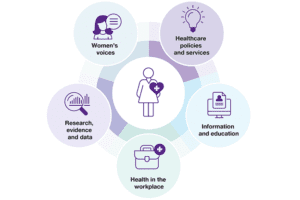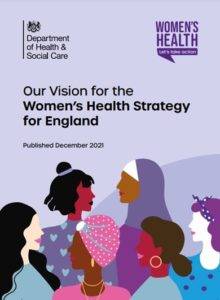
Government’s Ambition to Close the Gender Health Gap
So, if you don’t know about the gender health gap, it’s time to sit up and listen.
The immediate thought might be the gender pay gap, but this is something new. This is something as important as the gender pay gap. This is where we can finally make things happen in terms of women’s health in 2022.
The Government has published its vision for women’s health and they have set out key government commitments on women’s health and inequality. This analyses the health inequalities found between genders, and it’s about time too.
Damaging taboos and stigmas around women’s health made women feel like they couldn’t seek help and 8 out of 10 women have felt that they were not listened to by healthcare professionals.
Decades of gender health inequality
Decades of gender health inequality are finally addressed with this new Policy paper; “Our Vision for the Women’s Health Strategy for England”. In March 2022, the government launched a call for evidence to inform the development of the first Women’s Health Strategy for England. Something which has been so desperately needed for years, it feels like a huge milestone in women’s health equality.
The strategy’s aim is to improve the health of all women and girls, irrespective of whether they have undergone gender reassignment or are transgender.
“Central to the Women’s Health Strategy will be a focus on women’s health across the life course. Unlike a disease-oriented approach, which focuses on interventions for a single condition often at a single life stage, a life course approach focuses on understanding the changing health and care needs of women and girls across their lives. It aims to identify the critical stages, transitions, and settings where there are opportunities to promote good health, prevent negative health outcomes, or to restore health and wellbeing. Key considerations include the ways in which specific life events or stages of life can influence future health. For example, we know that women who have high blood pressure or pre-eclampsia during pregnancy are at greater risk of heart attack and stroke in the future.”
The gender health gap report looks at women’s health in three life stages;
- first, adolescents and young adults, from puberty to 24 years
- second, middle and reproductive years, from 25 to 50 years
- third, the later years, from 51 years onwards
What’s important to note, is that women work for the majority of all three stages, therefore this report is so needed to ensure equality for women’s health in the workplace.
Gender health Gap
Minister for Women’s Health Maria Caulfield said: “The responses from the call for evidence were in many ways as expected, particularly with regards to women’s priorities, but in some places the revelations were shocking.
“It is not right that over three-quarters of women feel the healthcare service has not listened. This must be addressed.
“Many of the issues raised require long-term system-wide changes, but we must start somewhere. I am proud to publish our Vision for Women’s Health. It is the first step to realising our ambition of a healthcare system that supports women’s needs throughout their lives.”

To address the issues raised through the call for evidence, the government wants to focus its attention on rectifying these areas of concern by:
- Ensuring that all women feel comfortable talking about their health.
- Making sure services are accessible for women to meet their needs throughout their lives.
- Making the working environment a supportive one.
- Collecting data from research trials to ensure research reflects the society better.
Details on the action government will take to fulfill these ambitions will be followed by the Women’s Health Strategy in Spring 2022.
To take immediate action to protect women and girls from harm, the vision document also sets out our intention to introduce legislation to ban hymenoplasty at the earliest opportunity.
This follows the recommendation from an independent expert panel to ban the practice which is intrinsically linked to virginity testing and stems from the same repressive attitudes towards a woman’s sexuality and the concept of virginity.
The publication of the vision document follows moves by the government to make Hormone Replacement Therapy, a key medication to offset the symptoms of menopause, more accessible by reducing the cost burden for menopausal women. The government is also establishing a new UK-wide menopause taskforce to further investigate how women going through the menopause can be better supported by clinicians, workplaces, and peers.

